|
05
JUL
2014
|
|
|
|
Are you up to date with rabbit feeding requirements? The European Pet Food Industry Federation, also known as FEDIAF, publish animal feeding guidelines – so we’ve compiled a handy summary for you.
FEDIAF strives to ensure high standards for all pet food products manufactured and sold in Europe, through consideration of safety, nutrition and palatability.
Last year, the organisation teamed up with the UK-PFMA (Pet Food Manufacturing Association) and a panel of renowned experts, including Professor Anna Meredith , to produce new guidelines for responsible rabbit ownership and feeding.
So, here’s our run-down of the most important points:
Rabbits must have a high-fibre diet
Fibre is needed to maintain gut movement and normal fermentation, prevent GIT (gastrointestinal tract) stasis and help wear down teeth.
Hay and grass are ideal sources of fibre for rabbits.
Amounts of different fibres must be monitored, includin.. [More]
|
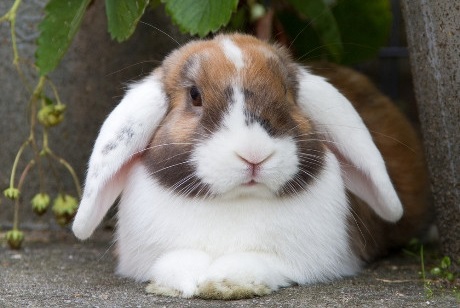
|
|
|
Tags :
FEDIAF’s Rabbit Feeding Advice
|
|
|
|
26
JUN
2014
|
|
|
|
Just as people are becoming increasingly aware of how many preservatives, hormones, synthetic dyes and chemicals are present in many conventional food sources, and how detrimental they can be to human health, so are they realizing that synthetic chemicals are not good for their beloved pets, either. The health craze that has been sweeping the modern world hasn’t stopped at human food. Your veterinary technician will agree: high quality pet food is worth the price.
People need healthful, nutrient-rich food with plenty of vitamins and minerals and as few chemicals and “fillers” as possible for long life and an overall sense of well-being. So does your pet. High quality pet food usually costs a bit more because rather than using cheap, empty ingredients, quality pet food is packed with protein-rich nutrition, with natural rather than chemical preservation. If you can afford it, buying high quality types of pet food is altogether worth the money for the benef.. [More]
|

|
|
|
Tags :
Avoiding Bad Ingredients In Small Animal Petfood , Dangerous Preservatives in Guinea Pig Food , Bad Ingredients in Chinchilla Food , Ingredients To Avoid In Rabbit Food , Avoiding Bad Pet Food Ingredients
|
|
|
|
15
JUN
2014
|
|
|
|
Oats been called the super food of the world from reducing asthma risk, control appetite hormones, part of gluten free diet, improve insulin….etc. In recent case, it is used more frequently as a supplement for small animals – providing necessary fattening agent and nutritional benefits.
Unknown to many, rolled oats are steamed groats that have literally been rolled out and flattened, with the bran (nutritional part) discarded. When most people think of “oats,” they’re thinking of rolled oats.
The main problems with oats are the phytic acid and the avenin, a protein in the prolamine family (along with gluten from wheat, rye, and barley, and zein, from corn). As far as phytic acid (or phytate) goes, oats contain less than corn and brown rice but about the same amount as wheat. Phytate has the tendency to bind minerals and prevent their absorption. So, even if a grain is rich in minerals, the presence of phytate prevents their full absorpt.. [More]
|
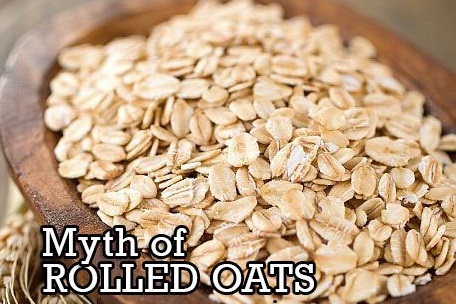
|
|
|
Tags :
Are Oats Healthy for Small Animals?
|
|
|
|
12
JUN
2014
|
|
|
|
Hay should form the foundation of a rabbit’s, guinea pig’s and chinchilla’s diet and you need to make sure you are feeding a plentiful supply each and every day. There are a number of different types of hay available and certain things you should look out for before feeding, so in this post we aim to walk you through them…
timothy grass
Pay Close Attention…
Before offering the hay to your pets make sure it is clean, free of dust and smelling fresh. To keep it at its peak you need to store the hay in a sealed bag in an area free from damp because it can quickly spoil. Keep it tightly packed because air helps it to become dry and brittle, which needs to be avoided. Hay retains a wonderful aroma, so have a smell – you should be able to smell the aroma of a grassy meadow.
Be consistent…
Fibrevores have a sensitive digestive system which does not cope well with frequent or rapid change. You should try and stick to a .. [More]
|
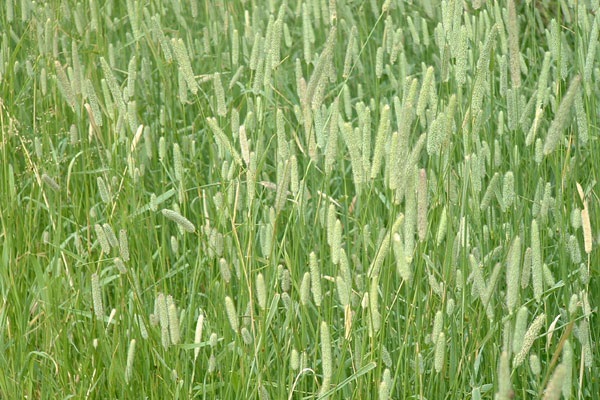
|
|
|
Tags :
Hay For Health And Happiness , Timothy Hay South Africa , Hay supplier , feeding timothy hay , rabbit food , guinea pig food , chinchilla food
|
|
|
|
06
JUN
2014
|
|
|
|
Fibre facts:
Fibre is the most important ingredient in rabbit food. It is essential for normal wear of teeth. So much so that FEDIAF state “For the health and well-being of a rabbit good quality hay should be fed at all times”.
Daily fibre intake is essential to the rabbit to maintain normal:
gut function
dental wear
fermentation in the caecum.
Fibre comes mainly from plant cell walls.
Plant cell walls containing lignin, cellulose and silicate phytoliths are also important for salivation and dental health.
Plant cell walls consist of polysaccharides associated with;
glycoproteins
phenolic compounds
acetic acid
lignin
Fibre definitions:
Digestible fibre – a young growing plant cell has primary cell walls, which contains fermentable or digestible fibre. This fibre supports caecal fermentation.
Indigestible fibre – older plants develop secondary cell walls, which cons.. [More]
|
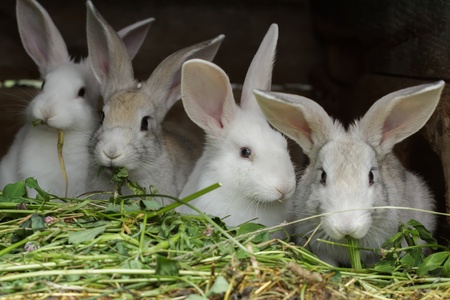
|
|
|
Tags :
Fibre Facts On Pet Food Labels , Fibre Facts & Definitions , Pet Rabbit Food South Africa , Chinchilla food South Africa , Pet Guinea Pig food South Africa , Timothy Hay South Africa , Teff Hay , Rabbit Hay ,
|
|
|
|
05
JUN
2014
|
|
|
|
Rabbits eat mainly carrots, right? Wrong! There are lots of misconceptions about what rabbits should eat. Find out what rabbits really should eat to stay healthy!
Myth #1 - Rabbits eat carrots
Carrots shouldn’t be main source of food. Rabbits don't naturally eat root vegetables/fruit. Carrots/fruit are high in sugar and should only be fed in small amounts as occasional treats. Rabbits need mainly hay and/or grass, some leafy greens and a small, measured amount of pellets.
Myth #2 - Hay is just bedding
Hay isn’t just bedding. Fresh, dust–free hay should be their main source of food available at all times. We recommend Timothy hay because it is high in protein and other nutrients and has lots of beneficial fibre.
Myth #3 - Rabbits eat lettuce
Diets shouldn’t be lettuce based. Rabbits shouldn’t eat some lettuces (e.g. iceberg) as they contain laudanum which can be harmful in large quantities. Some lettuce is "worse".. [More]
|
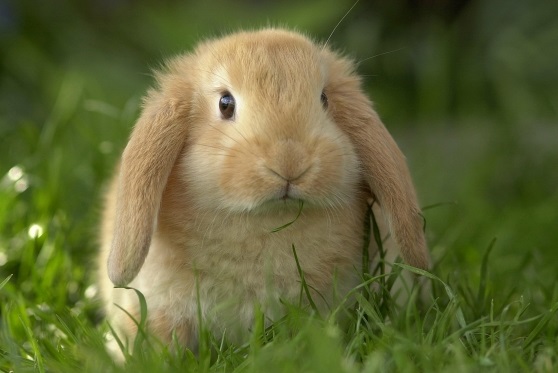
|
|
|
Tags :
Common Rabbit Diet Myths , Pet Rabbits South Africa , Pet Rabbit Care South Africa , Pet Rabbit Food South Africa , Food for bunny , petfood for bunnies , buy Timothy Hay South Africa
|
|
|
|
01
JUN
2014
|
|
|
|
Last April there was a lot of publicity over some joint research by the the Royal (Dick) School of Veterinary Studies and Burgess Pet Care into the effects of diet on rabbit’s health. The paper with the results was just published and I thought I’d summarise some of the findings for you.
What they studied
Thirty two dutch rabbits were neutered, vaccinated and divided into four groups to feed one of the following diets:
Extruded nuggets with hay (EH)
Muesli with hay (MH)
Hay only (HO)
Muesli only (MO)
They were then monitored over an 18 month period to observe the impact of the diets. The researchers measured things like how much food they ate and what came out the other end, and took x-rays of their teeth at regular intervals.
Hay Intake
Unsurprisingly the hay only group had the largest hay intake, but there were also differences between the Muesli-Hay and Nugget-Hay groups, with the Nu.. [More]
|
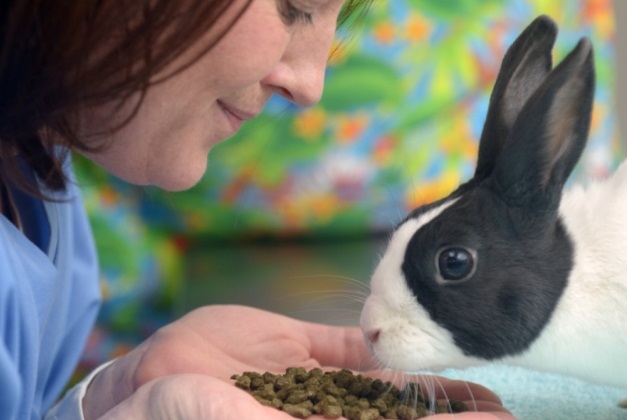
|
|
|
Tags :
Muesli Versus Pellets Research Revealed Into Rabbit and Guinea Pig Food Diets , Pet Rabbit Food South Africa , Pet Guinea Pig Food South Africa , Chinchilla Food
|
|
|
|
29
MAY
2014
|
|
|
|
Rabbits, guinea pigs and chinchillas must have diets high in fiber to keep their digestive systems healthy and working properly. Hay provides good digestive health as well as physical and mental stimulation. The two main types of hay are grass hay and legume hay. Grass hay is the better of the two because of its high nutrient content.
Grass hays include teff, eragrostis, timothy and meadow hay. Some legume hays are alfalfa, clover, beans and peas. While legume hays are very tasty to your rabbit, they are high in calories and can cause obesity.
The fiber in hay is essential to a rabbit’s digestive system. If bunnies don’t get a regular supply, their system will slow down, which can lead to fatal gastrointestinal stasis. The trouble is, not all hay is attractive enough for rabbits to want to eat.
Teff and eragrostis are perhaps two of the more widely used hay varieties in South Africa. The major disadvantage of these hays is that the nutritional value can r.. [More]
|

|
|
|
Tags :
Timothy Hay Supplier , Rabbits Need High Quality Hay , Timothy Hay is now available in South Africa , Timothy Hay Finally in S.A. , Buy Timothy Hay
|
|
|
|
24
MAY
2014
|
|
|
|
FANTASTIC NEWS! New research conducted by The University of Edinburgh & Burgess Pet Care has shown that rabbits fed on a muesli diet are more likely to suffer from dental and digestive problems. Pets at Home have taken a HUGE step by announcing the following: “We’re phasing out rabbit muesli in our stores & advising all our rabbit customers to transition onto rabbit nuggets and hay.”
Why are Pets at Home discontinuing rabbit muesli?
Pets at Home the largest pet retailer in the UK with more than 360 stores support the latest thinking in pet welfare standards and this decision has been taken in light of the weight of feeling amongst the veterinary community towards the feeding of muesli based diets, and their potential negative effects on the health of rabbits.
What is selective feeding?
A muesli diet consists of lots of different ingredients that make up the mix. A rabbit fed on muesli may pick out their favourite bi.. [More]
|

|
|
|
Tags :
Latest Muesli Research Findings by The University of Edinburgh & Burgess Pet Care , UK Pet Stores Stop Selling Rabbit Muesli
|
|
|
|
23
MAY
2014
|
|
|
|
We all need to take care of our teeth, but that is especially true in the case of pet rabbits. Vets report that three-quarters of all pet rabbits they treat are diagnosed with dental health problems, which can cause pain and distress, and can even prove fatal.
The most common complaint reported by vets is overgrown molars and enamel spurs that grow from teeth. These can irritate and tear the delicate soft tissue in the mouth, causing agonising injuries.
These spurs generally develop because rabbits aren't eating enough forage and hay, as they would in the wild. These naturally-abrasive, fibre-rich foods are important because they wear down the teeth. And because rabbits' teeth grow continuously by an astonishing 2mm every week, or 10-12cm every year, a lack of fibre in the diet means that problems can quickly develop.
Left untreated, uneven or insufficiently worn molars can lead to secondary complaints such as dental abscesses, which can cause your pet t.. [More]
|
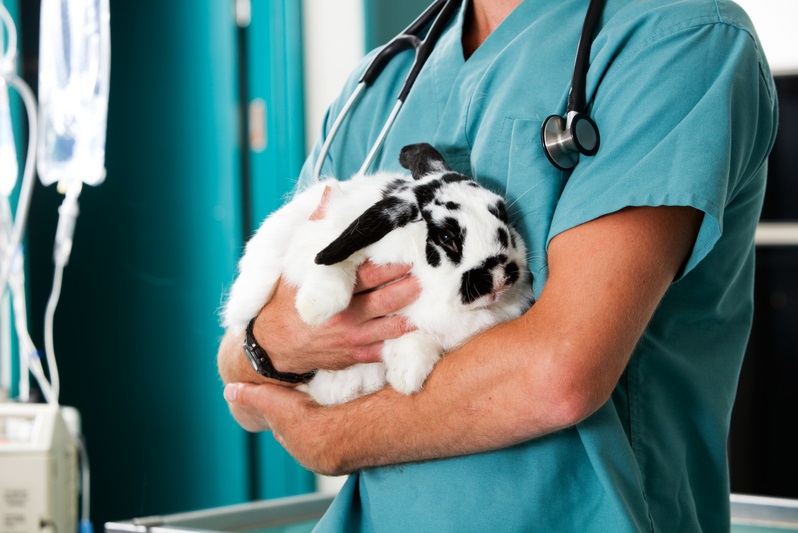
|
|
|
Tags :
Rabbit Dental Heath Care in South Africa , malocclusion ,
|
|
|
|
|
|
Category List
|
|
|
|
|
|
Archive List
|
2025 2023 2022 2021 2020 2019 2018 2017 2016 2015 2014 |
|
|